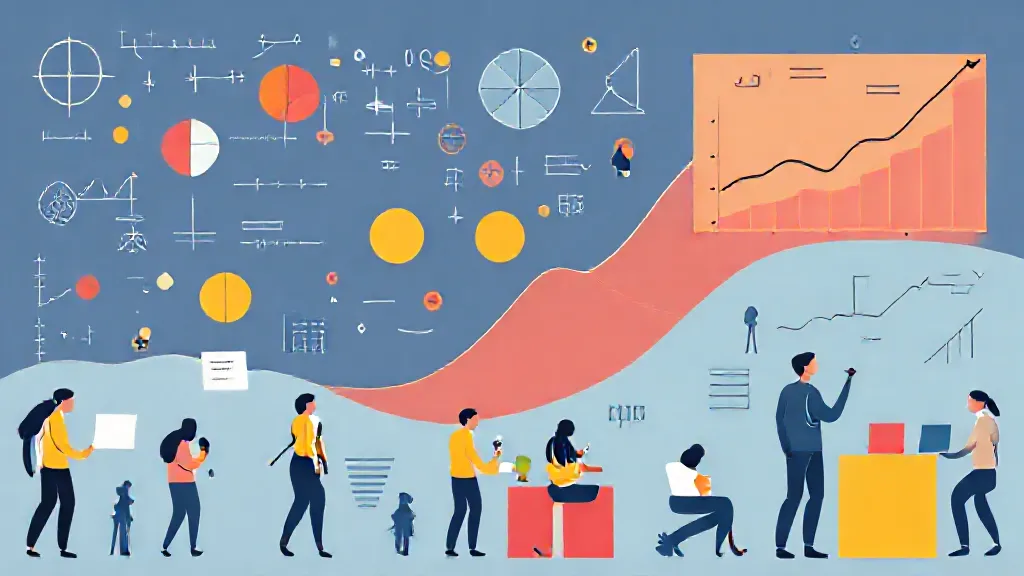Mathematics is often perceived as a purely abstract discipline, but its applications extend far beyond numbers and equations. In fact, mathematical concepts provide profound insights into human behavior, influencing various fields such as psychology, economics, and sociology. This article delves into how mathematical models and theories illuminate the complexities of human actions and decisions, offering a comprehensive understanding of our social dynamics.
Understanding Human Behavior Through Statistics
One of the most significant contributions of mathematics to understanding human behavior lies in statistics. Statistical methods allow researchers to collect, analyze, and interpret data about human actions, revealing patterns and trends that might otherwise go unnoticed. For instance, psychologists often use statistical analysis to study the correlation between different variables, such as stress levels and academic performance.
By employing techniques like regression analysis, researchers can quantify relationships and make predictions about future behavior based on historical data.
Game Theory: A Mathematical Framework for Decision Making
Game theory is another area where mathematics intersects with human behavior. This branch of mathematics examines strategic interactions among rational decision-makers.
It provides a framework for understanding how individuals make choices in competitive situations, such as in economics or social settings. For example, the Prisoner's Dilemma illustrates how two individuals might choose between cooperation and betrayal, highlighting the complexities of trust and negotiation. Game theory has applications in various fields, including political science, biology, and psychology, offering insights into conflict resolution and cooperation.
The Role of Probability in Human Decision Making
Probability theory also plays a crucial role in understanding human behavior. It helps explain how people assess risk and make decisions under uncertainty. For instance, the concept of expected utility theory suggests that individuals evaluate potential outcomes based on their probabilities and associated utilities.
This mathematical approach sheds light on why people might choose a guaranteed smaller reward over a larger, uncertain one, revealing the cognitive biases that influence decision-making processes. Understanding these biases can lead to better decision-making strategies in personal finance, health care, and beyond.
Mathematics in Behavioral Economics
Behavioral economics combines insights from psychology and economics, utilizing mathematical models to explore how people make economic decisions.
Traditional economic theories often assume rational behavior, but behavioral economics recognizes that humans are influenced by cognitive biases and emotions. Mathematical models in this field, such as prospect theory, illustrate how people perceive gains and losses differently, affecting their choices. This understanding has significant implications for policy-making, marketing, and personal finance, as it helps predict consumer behavior and design interventions that promote better decision-making.
Network Theory: Analyzing Social Interactions
Network theory, a branch of mathematics focused on the study of graphs and networks, provides valuable insights into social behavior. By modeling social interactions as networks, researchers can analyze how information, behaviors, and influence spread through populations. For example, understanding the structure of social networks can reveal how social contagion occurs, such as the spread of trends or behaviors.
This mathematical approach helps explain phenomena like the diffusion of innovations and the dynamics of social movements, offering a deeper understanding of collective human behavior.
Mathematical Psychology: Bridging Math and Mind
Mathematical psychology is a discipline that applies mathematical principles to understand cognitive processes and behavior. By creating mathematical models of mental functions, researchers can simulate and predict how individuals think and behave in various situations.
For instance, models of decision-making can illustrate how people weigh options and make choices, providing insights into cognitive processes like memory and perception. This interdisciplinary approach enriches our understanding of the mind and enhances psychological theories with rigorous mathematical foundations.
Historical Perspectives on Mathematics and Human Behavior
Throughout history, the relationship between mathematics and human behavior has evolved.
From ancient civilizations using basic arithmetic for trade to modern-day applications of complex algorithms in social media, mathematics has continually shaped our understanding of human interactions. Notable figures, such as Blaise Pascal and John von Neumann, contributed significantly to the development of mathematical theories that explore human behavior, laying the groundwork for contemporary research in this field. Understanding this historical context enriches our appreciation of how mathematics has influenced social sciences over time.
Conclusion: The Future of Math in Understanding Human Behavior
As we move forward, the integration of mathematics into the study of human behavior will only deepen. Advances in technology and data science provide new tools for researchers to analyze complex social phenomena, leading to more accurate models and predictions. By embracing the mathematical aspects of human behavior, educators and researchers can foster a more comprehensive understanding of the factors that drive our actions, ultimately enhancing our ability to address societal challenges and improve individual well-being.
